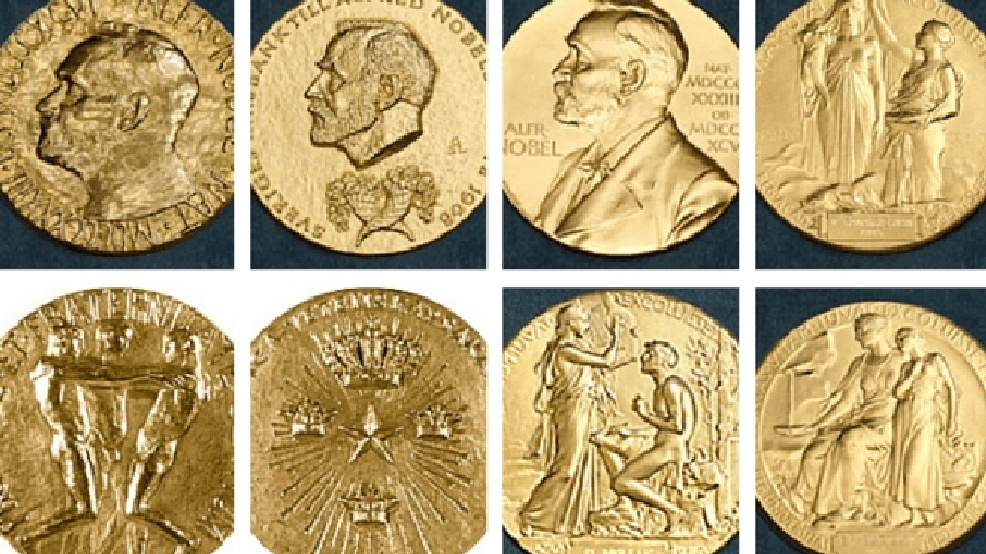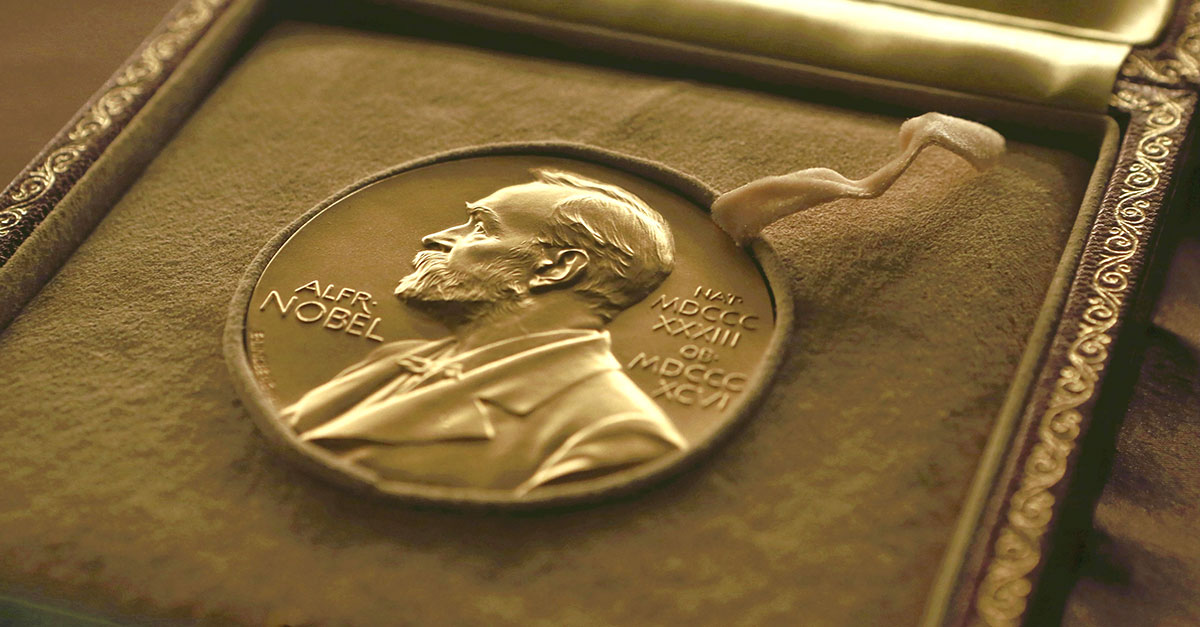How and when Nobel Prize Started?
Alfred Nobel was a Swedish chemist, engineer, and industrialist most famously known for the invention of dynamite. He died in 1896. In his will, he bequeathed all of his “remaining realisable assets” to be used to establish five prizes which became known as “Nobel Prizes”. Nobel Prizes were first awarded in 1901. In 1968, a sixth prize was established in the field of Economic Sciences; however, it is not considered a “Nobel Prize” but a “Nobel Memorial Prize”.
The prize ceremonies take place annually. Each recipient (known as a “laureate”) receives a gold medal, a diploma, and a monetary award. In 2020, the Nobel Prize monetary award is 10,000,000 SEK, or US$1,145,000, or €968,000, or £880,000. A prize may not be shared among more than three individuals, although the Nobel Peace Prize can be awarded to organizations of more than three people. Although Nobel Prizes are not awarded posthumously, if a person is awarded a prize and dies before receiving it the prize is presented.
The Nobel Prizes, beginning in 1901 and the Nobel Memorial Prize in Economic Sciences, beginning in 1969, have been awarded 603 times to 962 people and 25 organizations. Forty-two laureates have received more than one Nobel Prize.
Note: A person or organisation who is awarded the Nobel Prize is known as Nobel Laureate. The word “laureate” refers as a laurel wreath. In ancient Greece, it refers to a sign of honour.
Nobel Prize 2019:
| Nobel Laureates | Field | Contribution |
| William G. Kaelin Jr, Sir Peter J. Ratcliffe and Gregg L. Semenza | Physiology or Medicine | Discovered how cells sense and adapt to oxygen availability. |
| James Peebles, Michel Mayor and Didier Queloz | Physics | James Peebles: theoretical discoveries in physical cosmology And Michel Mayor and Didier Queloz discovered an exoplanet orbiting a solar-type star. |
| John B. Goodenough, M. Stanley Whittingham and Akira Yoshino | Chemistry | Discovered the development of lithium-ion batteries. |
| Peter Handke | Literature | Discovered an influential work that with linguistic ingenuity has explored the periphery and the specificity of human experience. |
| Abiy Ahmed Ali | Peace | For his efforts to achieve peace and international cooperation, and in particular for his decisive initiative to resolve the border conflict with neighbouring Eritrea. |
| Abhijit Banerjee, Esther Duflo and Michael Kremer | Economic Sciences | For their experimental approach to alleviating global poverty. |

Nobel Prize 2020:
| Nobel Prize Laureate | Field | Contribution |
| Harvey J. Alter, Michael Houghton and Charles M. Rice | Medicine | Discovered Hepatitis C virus |
| Roger Penrose | Physics | Discovered that black hole formation is a robust prediction of the general theory of relativity |
| Reinhard Genzel and Andrea Ghez | Physics | Discovered supermassive compact object at the centre of our galaxy |
| Emmanuelle Charpentier and Jennifer A. Doudna | Chemistry | Discovered the method for genome editing |
| Louise Glück | Literature | For her unmistakable poetic voice that with austere beauty makes individual existence universal |
| World Food Programme (WFP) | Peace | For its efforts to combat hunger, for its contribution to bettering conditions for peace in conflict-affected areas and for acting as a driving force in efforts to prevent the use of hunger as a weapon of war and conflict. |
| Paul R. Milgrom, Robert B. Wilson | Economic Science | For improvements to auction theory and inventions of new auction formats |
Unique Facts:
- Youngest person to receive a Nobel Prize:
Malala Yousafzai; at the age of 17, received Nobel Peace Prize (2014).
- Oldest person to receive a Nobel Prize:
John B. Goodenough; at the age of 97, received Nobel Prize in Chemistry (2019).
- Only person to receive more than one unshared Nobel Prizes:
Linus Pauling; received the prize twice. Nobel Prize in Chemistry (1954) and Nobel Peace Prize (1962)
- Laureates who have received Multiple Nobel Prizes:
1) Marie Curie; received the prize twice. Nobel Prize in Physics (1903) and Nobel Prize in Chemistry (1911).
2) Linus Pauling; received the prize twice. Nobel Prize in Chemistry (1954) and Nobel Peace Prize (1962).
3) John Bardeen; received the prize twice. Nobel Prize in Physics (1956, 1972).
4) Frederick Sanger; received the prize twice. Nobel Prize in Chemistry (1958, 1980).
5) International Committee of the Red Cross; received the prize three times. Nobel Peace Prize (1917, 1944, 1963).
6) United Nations High Commissioner for Refugees; received the prize twice. Nobel Peace Prize (1954, 1981). - Posthumous (after death) Nobel Prizes laureates:
1) Erik Axel Karlfeldt; received Nobel Prize in Literature (1931).
2) Dag Hammarskjöld; received Nobel Peace Prize (1961).
3) Ralph M. Steinman; received Nobel Prize in Physiology or Medicine (2011). - Married couples to receive Nobel Prizes:
1) Marie Curie, Pierre Curie (along with Henri Becquerel). Received Nobel Prize in Physics (1903).
2) Irène Joliot-Curie, Frédéric Joliot. Received Nobel Prize in Chemistry (1935).
3) Gerty Cori, Carl Cori. Received Nobel Prize in Medicine (1947).
4) May-Britt Moser, Edvard I. Moser. Received Nobel Prize in Medicine (2014)
5) Alva Myrdal; received Nobel Peace Prize (1982), Gunnar Myrdal; received Nobel Prize in Economics Sciences (1974).
6) Esther Duflo, Abhijit Banerjee (along with Michael Kremer). Received Nobel Prize in Economics Sciences (2019). - People who were not allowed to take the award:
In 1938 and 1939, the government of Germany did not allow three German Nobel nominees to accept their Nobel Prizes. The three were Richard Kuhn, Nobel laureate in Chemistry in 1938; Adolf Butenandt, Nobel laureate in Chemistry in 1939; and Gerhard Domagk, Nobel laureate in Physiology or Medicine in 1939. They were later awarded the Nobel Prize diploma and medal, but not the money.
- The year when Peace Prize was not given to anyone:
In 1948, the Nobel Prize in Peace was not awarded. The Nobel Foundation’s website suggests that it would have been awarded to Mohandas Karamchand Gandhi, however, due to his assassination earlier that year, it was left unassigned in his honor.
- Person who was forced to decline the Prize:
In 1958, Russian-born Boris Pasternak, under pressure from the government of the Soviet Union, was forced to decline the Nobel Prize in Literature.
- Person who refused the Prize:
1) In 1964, Jean-Paul Sartre refused to accept the Nobel Prize in Literature, as he had consistently refused all official honors in the past.
2) In 1973, Lê Ðức Thọ declined the Nobel Peace Prize. His reason was that he felt he did not deserve it because although he helped negotiate the Paris Peace Accords (a cease-fire in the Vietnam War), there had been no actual peace agreement. - Person who was unable to receive the Prize due to imprisonment:
In 2010, Liu Xiaobo was unable to receive the Nobel Peace Prize as he was sentenced to 11 years of imprisonment by the Chinese authorities.
- The year in which the prize was postponed:
The 2018 Nobel Prize in Literature was awarded in 2019, as scandals within the Swedish Academy forced it to postpone the ceremony.







More Stories
Indian Air Force Day: Everything You Need To Know
Earth Day: Date, History, Significance Of The Most Important Day
Jallianwala Bagh Massacre: Everything You Need To Know